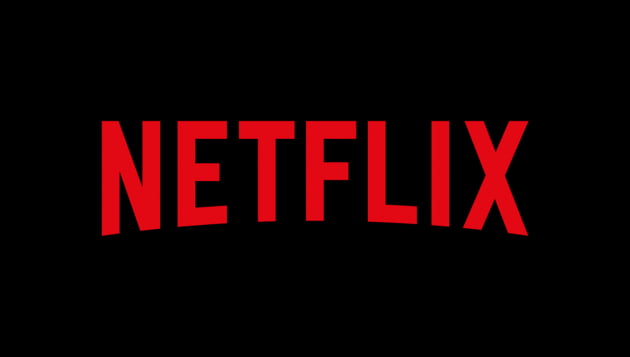MOVIE
How is Netflix taming K-content?

As Netflix, a leading OTT company, announced a large-scale investment in K-content, expectations and concerns are mixed. Although it is positive that K-content companies are securing a stable source of income, there are also great concerns that they may be reduced to de facto content suppliers as they become dependent on OTT platforms.
◆OTT’s sweet temptation
According to the content industry on the 11th, companies in charge of content production and distribution, such as film production companies and distributors, are currently contemplating how to handle the piled up movies. We are considering whether Korean movies that cannot be shown in theaters due to COVID-19 should be sold to OTT companies such as Netflix, Disney Plus, or Coupang Play.
In fact, several works owned by this company were sold to an OTT in the form of a contract in which they received about 120-130% of the production cost. An official from this company said, “If you sell a movie with original (Netflix exclusive content) content, you can make about 10 to 20 percent of the production cost as profit.” OTT is a possible contract because content can be purchased at a relatively low price instead of paying risk costs due to content failure, and content producers and distributors can reduce the risk of failure. Another industry official said, “This is a sweet offer for the domestic market, which has run out of money to invest in content production.”
◆Hidden thorn of a rose
Just as a beautiful rose has thorns, Netflix is not in the business of losing money. In exchange for guaranteed profits, we take advantage of more rights. By securing 100% of the IP (intellectual property rights), which is the core of the content, Netflix can capture the high added value that comes with the content becoming a huge hit.
Although 'Squid Game' was a huge hit, the production company itself did not receive a lot of money, which is one example. Netflix purchased Squid Game for $21.4 million. At the exchange rate at the time, it was worth a little over 25 billion won. The production company's profits are said to be approximately 5 billion won. According to Netflix's internal data reported by Bloomberg, Netflix's expected profit based on the number of viewers of Squid Game was $891.1 million, exceeding 1 trillion won.
Once you secure an IP, you can enjoy enormous additional profits by having all the rights to the content. Content can be sold to the global market, and there are endless areas that can be expanded, including publishing, character business, and goods production. The potential value of a powerful IP can be several or tens of times the investment amount. The OTT company, which is the owner of the IP, can use the work as it wishes.
An official who participated in the production of the Netflix original series told Ten Asia, "All rights, including sales and reprocessing of the content, are at Netflix's discretion. This is because Netflix owns 100% of the IP of the work." He added, "After the release of the work, it was a box office success and became a huge hit. “In most cases, the initial contract condition is that there will be no additional profit sharing even if it explodes,” he said.
◆K-content profitability less than 10%
In the short term, the general consensus is that investment in Korean content by large OTT companies such as Netflix is positive. However, there are concerns in the industry that as dependence on OTT deepens, the profitability of the K-content industry will remain in the low 10% range, which is the profitability of the manufacturing industry.
This trend can be seen in the profitability of actual domestic content producers and distributors. Studio Dragon, a representative drama production company, has had an operating profit ratio of around 10% for three years from 2020. The operating profit margin forecast for this year is also 10%. Ace Story also maintains an operating profit margin in the low 10% range. NEW, a movie distributor, recorded an operating profit margin of 4.6% last year, while competitor Showbox posted a loss.
Industry growth is evaluated in the form of steady industry growth or increased profitability, but in terms of numbers, the growth potential of K-content is not increasing. This is why Netflix's 12-month forward price-to-earnings ratio (PER) in the stock market is high at 28 times, while K-Content Stock is unable to escape from its relatively low PER.
An operating profit margin of 10% is considered the industry's profitability ceiling. An official who has supplied original content to Netflix said, "The profits of production companies that have signed a contract with Netflix are about 10% of the average investment," and added, "They say even that profit ratio is decreasing recently." As a result, the content industry is grateful that OTTs are investing in content, but on the other hand, there are concerns that it may become a 'cage form'. This official expressed his concern, saying, “Isn’t Netflix, which is providing a huge amount of capital, using our content market as a subcontractor? Netflix’s influence is growing, but the value of our content is decreasing.”
◆Experts say, “IP must be secured”
For this reason, experts are calling for industry efforts to secure IP from the contract stage with OTT and support measures to support this.
At a seminar on 'How to view Netflix's investment in Korea' held on the 9th by members of the National Assembly from the Culture, Sports and Tourism Committee, advice from experts on such industry concerns was poured out.
The discussant, Noh Chang-hee, a researcher at the Digital Industry Policy Research Institute, explained, "Investment in Netflix is a good opportunity, but we need to think about sustainable development," adding, "Like 'Weird Lawyer Woo Young-woo,' it is necessary to secure the IP itself." He added, “We need to provide enough factors to secure IP before signing a contract with Netflix, and when receiving investment, we need to provide support by allowing domestic operators to have IP.”
Lee Seong-min, a professor at Korea National Open University, also pointed out, “IP negotiation power is important to prevent K-content from being subcontracted,” and added, “Securing IP should not last only at the production stage.” However, some discussants raised concerns that excessive regulation to secure IP could actually discourage domestic OTT operators. Heo Seung, director of Watcha, said, “Currently, the opportunity to expect profitability is not equal and is only open to Netflix,” adding, “We are improving the sustainability of the development of the K-content industry by changing the media and content framework designed for the existing domestic market into a global value chain.” “We need to discuss it,” he argued.
Netflix announced its investment plan and described the Korean content market as a 'partner'. The dictionary definition of a companion is ‘a person who acts as a partner when doing something.’ It remains to be seen whether Netflix is a partner or is more of a predator stealing the essence of K content at a low price.
Choi Ji-ye, Ten Asia Reporter wisdomart@tenasia.co.kr



